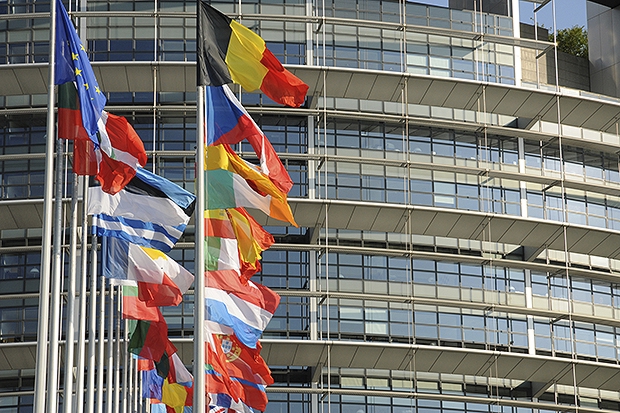The EU must cooperate much stronger to fight Covid-19 and other cross-border health threats/ Cooperation on development and procurement of vaccine close to a big success
“We need a European Health Union to better fight against cross-border health threats like Covid-19,” stated Peter Liese, medical doctor and health spokesperson of the biggest political group in the European Parliament EPP (Christian Democrats) in light of the presentation of the so-called “lessons learned package” that will be presented by the European Commission on Wednesday. Liese raised the expectation that the Health Union, that has been asked for by his group (https://www.eppgroup.eu/newsroom/publications/epp-group-position-paper-on-a-european-union-for-health) and the European Parliament in July (https://www.europarl.europa.eu/doceo/document/TA-9-2020-0205_EN.pdf, will be supported by the European Commission and also by the Council of Ministers. “The Covid-19 pandemic has shown that Europe was not prepared against this kind of health threat and those who have always argued in the past that health should remain a purely national issue have been proven wrong”, says Liese.
The Commission will make three legislative proposals:
First, they will propose a regulation on cross-border health threats replacing the existing directive. “Already back in 2013, the European Parliament asked to draw the right lessons from threats that occurred at that time. It is now high time to act! Among others, we need the opportunity to declare an EU emergency situation. In the Covid-19 pandemic, we depended too much on the WHO. While I strongly value the work of WHO and I am very happy that the president-elect of the United States Joe Biden will probably revoke the decision of Donald Trump to leave this important institution, one cannot argue that the WHO did not made mistakes. I think they declared the public health emergency too late under the pressure of China, which is why it would be very important to have the possibility to act at a European level in future, similar situations”, says Liese.
The second proposal concerns the European Centre for Disease Control (ECDC). “I think the ECDC needs to be significantly strengthened. In many member states, we have much stronger centres for disease control. The German Robert-Koch-Institut for example has two times more staff then the ECDC and they are only responsible for Germany. If we really want to have an effective response at European level, we need more responsibilities and staff for the ECDC. It is also important that they are able to give recommendations which unfortunately was not the case due to the current very weak mandate”, according to the MEP.
The third proposal concerns the European Medical Agency (EMA). “The EMA needs to be mandated to better monitor and mitigate the risk of shortages of critical medicine and critical devices. When I worked as a doctor in the beginning of the pandemic in March and April, one of the very painful experiences was that we did not have any masks. For me it was uncomfortable; for many doctors in Italy it meant that they died from Covid-19. We have to be much better prepared”, argues Liese.
The measures will be financed through the new strengthened EU4Health Programme, which will be adopted by the European Parliament on Thursday in first reading. Parliament and Commission on the one side and Council on the other side are deeply divided on the financial resources for this programme. While the Parliament and the Commission propose 9,4 billion for the next seven years, the Council only agreed to 1,9. “I expect a significant increase compared to the European Summit decision. We cannot go out to our citizens and tell them that in these times resources for health are not the absolute priority. On top of the pandemic preparedness, the European Parliament insists in a strong focus on cancer, especially cancer with children. It would be possible, for example, to have a joint procurement on screening or a vaccine against some types of cancer, for example HPV vaccines. The MEPs also support the creation of a European Cancer Institute, “says Liese.
In addition, the strengthening of digital health is a priority for the European Parliament.


